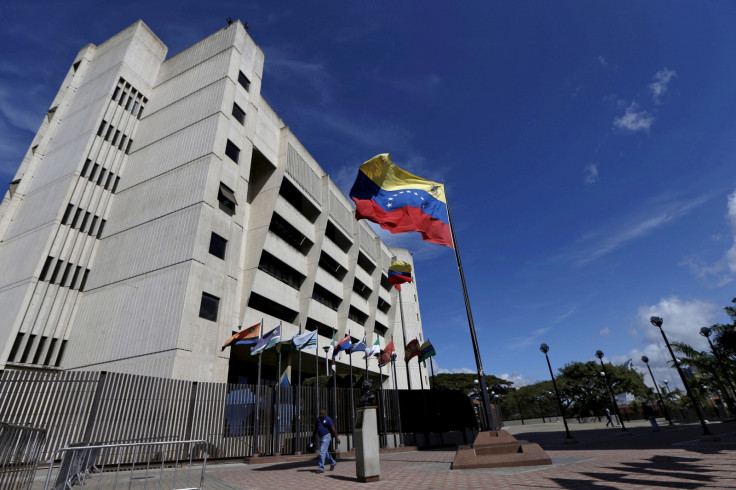Venezuelan Supreme Court attacked with grenades from 'stolen' helicopter
Footage on social media showed a helicopter hovering over the capital city of Caracas before a loud bang was heard.
The Supreme Court of Venezuela came under attack from the sky on Tuesday (27 June), Information Minister Ernesto Villegas said. Fifteen shots were fired and four Israeli-made grenades of "Colombian origin" were launched at the building from a stolen helicopter, he added.
Footage on social media showed a helicopter hovering over the capital city of Caracas before a loud bang was heard. The helicopter was also reportedly seen hovering over the Interior Ministry.
President Nicolas Maduro has condemned the incident and called it a "terrorist" attack against his government.
"I have activated the entire armed forces to defend the peace. Sooner rather than later we are going to capture the helicopter and those behind this armed terrorist attack against the institutions of the country," Maduro said in a speech from the Miraflores presidential palace on Tuesday.
No one was injured or killed in the assault, Reuters reported.
An army officer reportedly seized the helicopter and flew it over Caracas city. The officer has also appeared in a social media video, condemning the socialist government of Maduro – who has been facing months of opposition protests and rebellion from within government ranks.
Aquà un vÃdeo que me llegó por whatsapp de un helicóptero sobrevolando y disparando en los alrededores del TSJ
— Od. Luis Marcano (@OdLuisMarcano) June 27, 2017
(@PableOstos @PoleoRafael ) pic.twitter.com/QQ1qPcnCm7
The army officer, who identified himself as Oscar Perez, appeared on an Instagram video surrounded by armed and masked men in uniform, and appealed to the people of Venezuela to oppose "tyranny".

"We are a coalition of military employees, policemen and civilians who are looking for balance and are against this criminal government. We don't belong to any political tendency or party. We are nationalists, patriots and institutionalists," he says in the video.
His "fight" was not against security forces, but "against the impunity of this government. It is against tyranny", Perez said.
Months-long protests
The attack came amid ongoing protests in the country, which has been facing a political turmoil for months.
Anti-government demonstrations started in the country in early April after the Supreme Court annulled the opposition-dominated National Assembly and removed lawmakers' immunity. Although the court retracted the ruling, there is still widespread anger against the government.

Over 70 people have died across the country and hundreds have been injured in several rallies over the past three months.
Protests intensified in May after Maduro called for a rewrite of the country's constitution in a bid to control the ongoing protests against his government.
Maduro's warning
On Tuesday, Maduro warned he and his allies would not hesitate to take up arms if his government was overthrown by "undemocratic forces".
He was speaking at a rally to promote a 30 July voting for a super-body – called a Constituent Assembly – which could rewrite the national charter and surpass other institutions such as the opposition-controlled congress.
Maduro has publicised it as the only way to stabilise the country's situation.
But the government's opponents and critics have said that the president's move towards a constitutional shake-up is a "coup" and have called for his resignation.
Acute crisis
While Maduro's critics blame him for the country's woes, the president has alleged that the opposition and business community are responsible for the shortage of essential supplies.
The socialist president has accused his opponents of blocking the supply of medicines to create a health crisis, which would help them plan a coup against him.
The country's economic miseries are likely to take a turn for the worse, with the International Monetary Fund (IMF) predicting that inflation will rise to 720% in 2017 and to over 2,000% in 2018.
Venezuela's acute shortage of almost everything from food to vaccines has forced thousands to cross the country's borders. People are moving to Brazil and Colombia, seeking a better life.

© Copyright IBTimes 2025. All rights reserved.



















